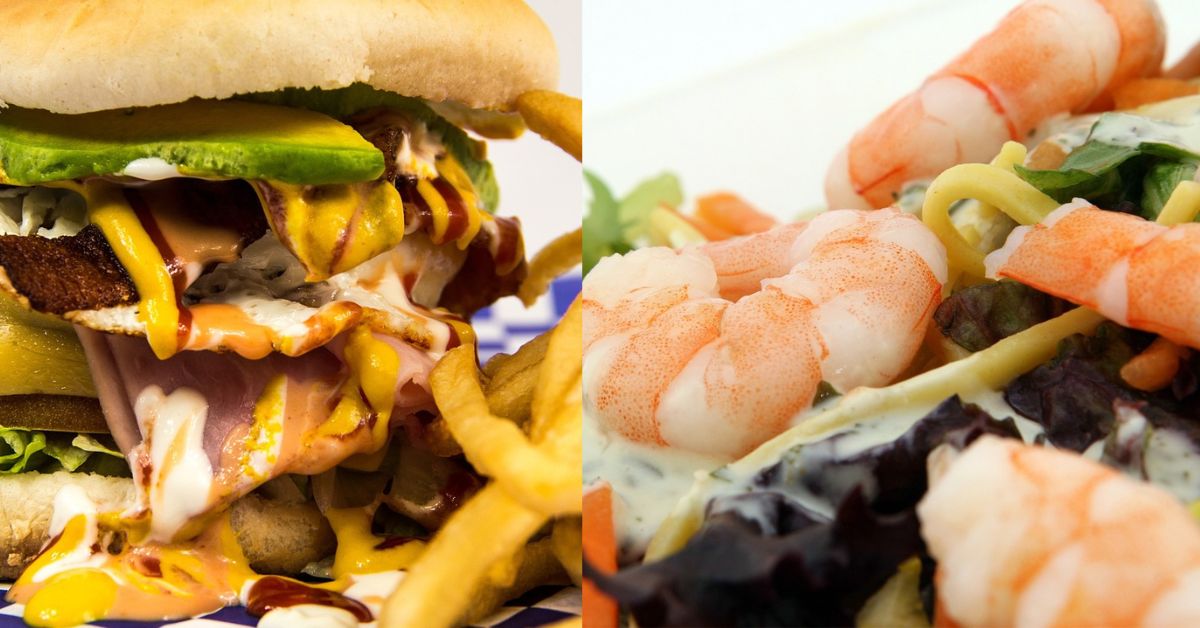High Cholesterol Foods
In today’s fast-paced world, maintaining a healthy lifestyle has become increasingly challenging. One of the major health concerns that people often face is high cholesterol. Cholesterol is a waxy substance found in our bodies and in certain foods. While our bodies need cholesterol to function properly, having high levels of it can lead to various health problems, including heart disease. In this comprehensive article, we will delve into the realm of high cholesterol foods, separating fact from fiction and providing you with valuable insights to make informed choices for a heart-healthy diet.
Understanding Cholesterol and its Impact on Health
To comprehend the significance of high cholesterol foods, we must first understand what cholesterol is and how it affects our health. Cholesterol is primarily produced by the liver and is involved in essential bodily functions like hormone production and cell structure. However, when cholesterol levels exceed the recommended range, it can contribute to the formation of plaque in the arteries, increasing the risk of heart disease and stroke.
The Role of Dietary Cholesterol
Contrary to popular belief, dietary cholesterol does not have as significant an impact on blood cholesterol levels as previously thought. Extensive research has shown that saturated and trans fats have a more substantial influence on raising LDL (low-density lipoprotein) cholesterol, often referred to as “bad” cholesterol. While it is still important to moderate dietary cholesterol intake, it is crucial to focus on reducing the consumption of foods high in saturated and trans fats.
Debunking High Cholesterol Food Myths
There are several misconceptions surrounding high cholesterol foods that need to be debunked. Let’s address a few of these common myths:
Myth
Eggs are Bad for Cholesterol
Eggs often get a bad reputation due to their cholesterol content. However, research suggests that the cholesterol in eggs does not significantly raise blood cholesterol levels in most individuals. In fact, eggs are a rich source of high-quality protein and contain essential nutrients beneficial for overall health.
Myth
All Fats are Harmful
Not all fats are created equal. While saturated and trans fats should be limited, unsaturated fats, such as those found in avocados, nuts, and olive oil, can actually have a positive impact on cholesterol levels. Including these healthier fats in your diet can help maintain a balance between “good” and “bad” cholesterol.
Myth
Cutting Out All High Cholesterol Foods is Necessary
Adopting a strict no-cholesterol diet is unnecessary and potentially detrimental to overall health. Our bodies require some cholesterol to function optimally. The key is to make smart choices by focusing on a well-rounded diet that includes whole grains, lean proteins, fruits, and vegetables while limiting the intake of high cholesterol foods that are also high in unhealthy fats.
Identifying High Cholesterol Foods
While dietary cholesterol may not have as significant an impact as saturated and trans fats, it is still essential to be mindful of high cholesterol foods. Some common examples include:
Organ meats: Liver, kidney, and brain.
Shellfish: Shrimp, lobster, and crab.
High-fat dairy products: Cheese, cream, and butter.
Processed meats: Sausages, hot dogs, and bacon.
Strategies for a Heart-Healthy Diet
Maintaining healthy cholesterol levels requires a balanced approach to nutrition. Here are some effective strategies to help you achieve a heart-healthy diet:
Increase your intake of fruits and vegetables: These are naturally low in cholesterol and high in fiber, which can help lower cholesterol levels.
Choose lean proteins: Opt for skinless poultry, fish, legumes
Strategies for a Heart-Healthy Diet (continued)
Choose lean proteins: Opt for skinless poultry, fish, legumes, and tofu as excellent sources of protein without the added cholesterol and unhealthy fats found in red meats.
Incorporate whole grains: Replace refined grains with whole grains like quinoa, brown rice, and whole wheat bread. These provide more fiber, vitamins, and minerals while promoting heart health.
Include plant sterols: Plant sterols are naturally occurring compounds that can help reduce LDL cholesterol. Foods fortified with plant sterols, such as certain margarines and orange juice, can be beneficial additions to your diet.
Be mindful of cooking methods: Opt for healthier cooking techniques like grilling, baking, or steaming instead of frying or deep-frying. This can help minimize the consumption of unhealthy fats.
Monitor portion sizes: Even healthy foods can contribute to high cholesterol if consumed excessively. Be mindful of portion sizes to maintain a well-balanced diet.
The Role of Exercise in Cholesterol Management
In addition to a heart-healthy diet, regular physical activity plays a vital role in managing cholesterol levels. Exercise helps increase HDL (high-density lipoprotein) cholesterol, often referred to as “good” cholesterol, while lowering LDL cholesterol. Aim for at least 150 minutes of moderate-intensity aerobic activity, such as brisk walking or cycling, each week.

Seeking Professional Guidance
While the information provided in this article can guide you towards a heart-healthy diet, it is essential to consult with a healthcare professional or a registered dietitian for personalized advice. They can assess your specific health needs, consider any underlying conditions, and provide tailored recommendations to effectively manage your cholesterol levels.
Understanding the impact of high cholesterol foods is crucial for maintaining optimal heart health. While dietary cholesterol plays a smaller role than previously believed, it is still important to focus on a well-rounded diet that limits saturated and trans fats. By incorporating whole foods, lean proteins, and healthy fats into your meals, and adopting an active lifestyle, you can effectively manage your cholesterol levels. Remember, making informed choices and seeking professional guidance are essential steps towards achieving and maintaining a heart-healthy lifestyle.
Kidhours – High Cholesterol Foods

